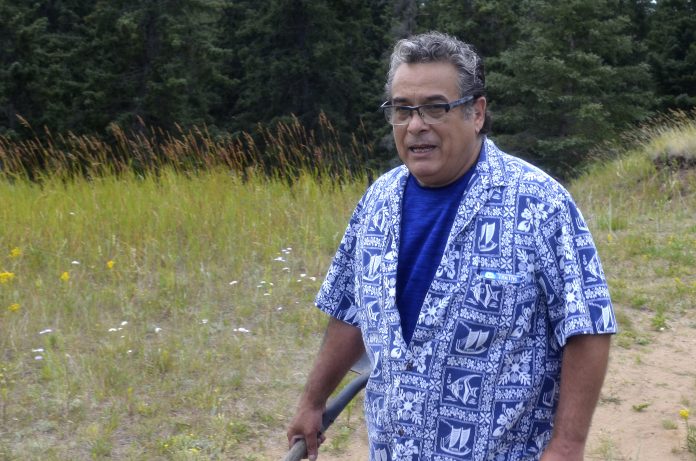
The Coalition of Indigenous Peoples of Saskatchewan concerned about leadership, Indigenous heritage of national advocacy group’s leaders
The local affiliate of the Congress of Aboriginal Peoples (CAP) is calling for the national chief and CEO to resign.
The Coalition of Indigenous Peoples of Saskatchewan (CIPS), an advocacy organization representing the interests of Métis and status and non-status Indians living off-reserve in Saskatchewan, sent out a news release dated for Wednesday calling for the pair to resign. CAP has the same mandate at the national level.
“The Coalition of Indigenous Peoples of Saskatchewan has lost all trust and confidence of the leadership of National Chief Robert Bertrand,” the release says.
According to the release, Bertrand took office on Sept. 30, 2016 with a mandate to raise the profile of CAP and make it a truly representative organization.
“At a time when the Assembly of First Nations, Métis National Council and Inuit Tapiriit Kanatami are making significant progress to implement a nation-to-nation and government-to-government relationship with the federal government, CAP has not been able to establish equitable policy space to advance its agenda,” the release said.
“The organization has ben excluded from intergovernmental and federal tables dealing with substantive issues affecting Indigenous peoples and is now struggling to prove that the National Chief and Chief Executive Officer are in fact Indigenous people.”
CAP didn’t return requests for comment.
The ancestry of Bertand became an issue at the organization’s annual general assembly in Ottawa in September, according to APTN.
In a follow-up interview with APTN, Bertrand was vague and couldn’t remember when pressed on the issue.
“I am, in my opinion, I am Métis from the Quebec side,” the former Liberal MP told the television station.
When pressed on from which part of Quebec his Indigenous roots stemmed from, or how back they go, he told APTN that he “couldn’t remember off-hand.
“I am sure I am Indigenous,” he said. “If you are asking me if it’s the third generation, I can’t remember. I have Indian blood. My ancestors were from Algonquin descent. I don’t see the relevance of it.”
Bertrand also said he met the criteria of the Native Alliance of Quebec.
John Hanikenne, president of the Coalition of Indigenous Peoples of Saskatchewan, also read the APTN story. He has concerns about the identity of Bertrand and of CEO Jim Devoe. He says he also pressed staff and leaders of CAP and CIPS to show their lineage, and they refused, offended by the question.
“I’ve lost all confidence in National Chief Bertrand and CEO Devoe in their ability to work for Métis and off-reserve First Nations. The lingering questions concerning their Indigenous identities is a major part of the problem as to why CAP has failed to stop its terminal decline,” he said in the press release.
“The immediate resignation of Bertrand and Devoe would be appropriate starting points for reform of this national Indigenous organization and restoring commitment, celerity and confidence.”
Hanikenne and CIPS don’t see themselves sticking with CAP for much longer. According to Hanikenne, other provincial affiliates have also called on Bertrand and Devoe to resign. CIPS will continue advocating provincially, but likely won’t attend any CAP events until the group sees some change.
“We definitely … need a body, or a secretariat of some kind, to represent Indigenous people in the urban centres,” Hanikenne said. The need is especially great in light of the Daniels’ decision, with ruled that Métis and non-status Indians fall under federal government jurisdiction.
“The FSIN and AFN are focused on treaty, on-reserve (issues), Hanikenne said. “There has to be an alternate body.”
While CAP has said it is that body, Hanikenne, and CIPS, disagree.
Hanikenne said the group now has no credibility, and hasn’t shown any leadership.
“They’ve been riding off the backs of organizations and following them on the issues of the day,” he said. “They don’t take a leadership role. Why don’t we advocate for economic development? That’s less of a Band-Aid solution and more of a proactive approach. We need leaders.”
Beyond the issues of identity and credibility, Hanikenne said he’s only heard from CAP leadership once, and that they rarely speak to the issues facing urban, off-reserve First Nations people. He’s also been unable to get answers as to where CAP’s funding goes
“We don’t need people sitting in these positions never speaking for us or providing anything on the ground,” Hanikenne said.
“They don’t have any credibility left.”

